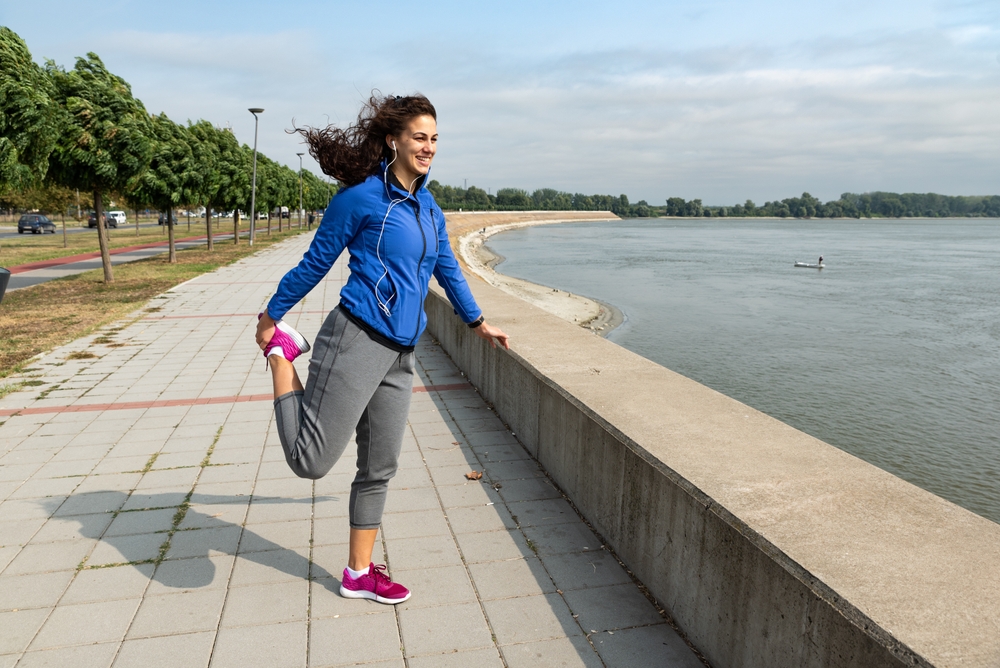A groundbreaking study demonstrates how exercise can prevent recurring colon cancer. According to the World Health Organization, colorectal cancer (also known as bowel cancer, colon cancer, or rectal cancer) is one of the most common types of cancer, and the second leading cause of cancer-related deaths in the world. Moreover, research shows that recurrence happens to 30% to 40% of people who have finished colon cancer treatment. Therefore, scientists are investigating ways to reduce the risk of cancer returning, and a new study proposed a simple solution: exercise.
Exercise is the New Drug for Colon Cancer Survivors

The late-phase trial showed that those who followed an exercise program after treating Stage 3 or high-risk Stage 2 colon cancer with surgery and chemotherapy could lower risk of recurrence, a new cancer diagnosis, or death, by 28%. “We approve drugs that have the same and in some cases less of a benefit than this,” said Dr. Julie Gralow, the chief medical officer of the American Society of Clinical Oncology (ASCO), to NBC News. The study was published in the New England Journal of Medicine and presented at the annual 2025 ASCO meeting.
The trial was conducted at 55 cancer centers with patients who had undergone surgery and chemotherapy to treat colon cancer. From 2009 to 2024, 889 patients were randomly assigned to two groups. In one, they participated in a structured exercise program. In the other, they only received the standard health educational materials over the course of three years. The researchers found that the 3-year exercise program after colon cancer treatment resulted in longer disease-free and overall survival.
Additionally, those in the exercise group who were given a trainer or physical therapist to create a personalized and enjoyable exercise regimen were more likely to continue working out. The regimen could include kayaking, biking, or swimming. But most patients chose 45 to 60 minutes of brisk walking a few times a week. Keep in mind, the average age of the participants was 61, and 90% of them had stage 3 colon cancer, which had about a 35% recurrence rate (according to nationwide Danish cohort study).
Read More: Young Women Missed the Signs of Colon Cancer, Now They’re Sharing What to Watch For
Prescribing Exercise

“For every 16 patients exercising, exercise prevented one case of cancer,” said Chris Booth, medical oncologist and the lead researcher of the study, while presenting at ASCO. “For every 14 people that were on the exercise program, exercise prevented one person from dying.” He further compared exercise to Oxaliplatin, a common colon cancer chemotherapy drug that costs $3,000 to $6,000 per treatment. Oxaliplatin provides a survival rate increase of 5% over ten years. Meanwhile, the exercise program showed a 7% increase in survival rate over eight years, reports Business Insider.
Keep in mind, the study does more than demonstrate how exercise can help reduce the risk of recurrent colon cancer. It also shows that healthcare providers must do more than simply tell the patients to exercise more. “Knowledge alone is likely to be insufficient to allow most people to make meaningful and sustained change,” Booth said. He believes exercise should be treated like medicine, with a prescription, allotted trainer, and rigorous schedule.
Cancer healthcare providers and ASCO attendees are excited about this revelation, and its future implementation. “This is excellent news for future patients with bowel cancer and is likely to bring additional health benefits…” said David Sebag-Montefiore, the Professor of Clinical Oncology and Health Research at the University of Leeds, to the Science Media Centre. “The great appeal of a structured moderate intensity exercise is that it offers the benefits without the downside of the well-known side effects of our other treatments.”
Feeling Better After Colon Cancer

Moreover, exercise has “side effects” too, positive ones. “The ‘side effects’ of exercise are almost all good (fitter, stronger, less fatigue, less depression, lower [heart disease] risk, etc.),” said Kerry S. Courneya, PhD, lead author of the study, researcher and professor at the University of Alberta, to Medical News Today. “I think exercise keeps having an effect on new primary cancers and possibly other causes of death. Intervention participants were still doing more exercise than health education [participants] at years 4 and 5.” She emphasized that exercise is more cost-effective as well. “The [physical activity] intervention was maybe 3,000 to 5,000 [CAD] whereas it is not uncommon for some cancer drugs to be 10s of thousands and even reach 100,000.”
Most cancer clinics are equipped to provide chemotherapy and other cancer treatments, but not post-cancer-treatment exercise regimens. The study authors and many oncologists are pushing for structural support for patients so they can recieve personalized exercise treatment plans, as well as regular assistance and encouragement. People in cancer recovery should speak to their healthcare providers before beginning a new exercise program. Additionally, never go off of prescribed drugs without medical guidance.
Read More: Doctors Uncover Breakthrough Amid Alarming Surge in Colon Cancer Cases in Youth

